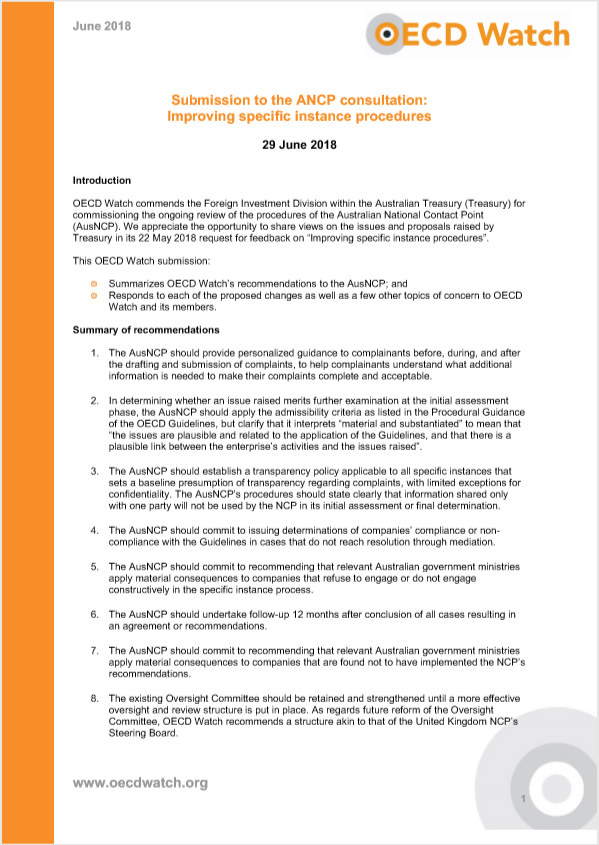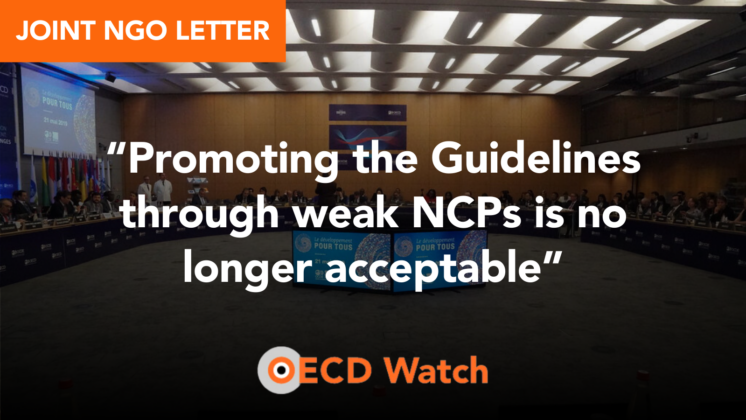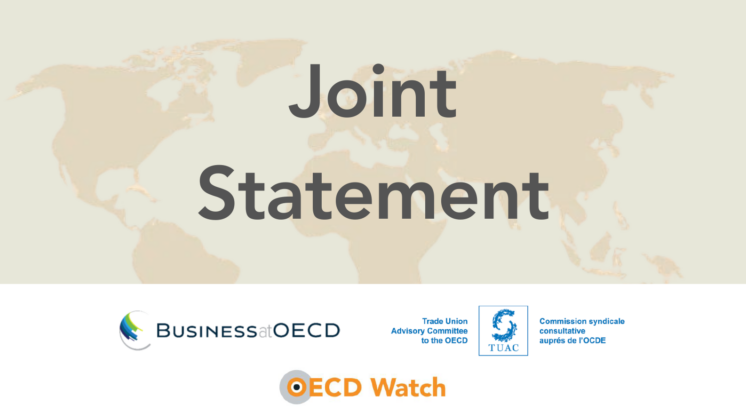This submission responds to questions posed by the Australian NCP regarding proposed improvement to its specific instance procedures. The submission outlines ways in which the NCP can strengthen its procedures to advance the effectiveness of the OECD Guidelines for Multinational Enterprises and better resolve complaints related to corporate misconduct.
read more lessrelated content
State of Remedy 2023
Short guide to the Guidelines for civil society
Alignment within Reach
OECD Watch webinars for civil society: Strategic and effective NCP complaints
Español – abajo / Français – ci-dessous / العربية – أدناه Let’s learn more about how National Contact Point (NCP) complaints can support your broader strategy for justice! On 26 and 27 June, OECD Watch…
OECD Watch submission for NCP Finland’s peer review
Requiring more from National Contact Points
National Contact Points have the unique potential to support access to remedy for business-related harms, but most aren’t meeting it. OECD Watch is demanding more – and sharpening our tool to measure achievement. Since 2019,…
OECD Watch and 130+ NGOs call for meaningful Guidelines’ implementation
OECD Watch and 130 NGOs from a broad range of groups have signed a letter calling for a greater civil society role in OECD policymaking and meaningful implementation of the OECD Guidelines in law. In…
OECD Watch, business, and union joint statement urging greater NCP effectiveness
On March 8 2024, OECD Watch, along with Business at OECD (BIAC) and TUAC, representing business, workers, and non-governmental organisations, issued a joint statement urging governments and the OECD to take concrete actions to ensure…
OECD Watch says yes to the CSDDD
On 28 February 2024, OECD Watch joined more than 140 civil society organisations in a joint statement condemning the failure of the EU Council to endorse the Corporate Sustainability Due Diligence Directive (CSDDD). The lack…
OECD Watch at the Garment Forum
On 21-22 February 2024, OECD Watch joined the OECD Forum on Due Diligence in Garment and Footwear, with the aim of highlighting crucial aspects of the OECD Guidelines for the sector. Stakeholder engagement Throughout the…















